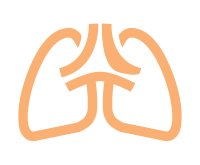Improve your Sleep Health
Lack of, or poor quality, sleep can lead to decreased ability to recover from illness, a strained immune system and chronic disease. Lifestyle medicine identifies dietary, environmental and coping behaviors to improve sleep health.
How much sleep do you need?
Choose your age group and see how much sleep you should be getting every night!
A good night's sleep can help with:
Newborns
Newborns
16-18 hours a day
Pre-School Children
Pre-School Children
11-12 hours a day
School-age Children
School-age Children
10 hours a day
Teens
Teens
9-10 hours a day
Adults
Adults
7-8 hours a day
Helpful tips to sleep better
Your daily routines such as what you eat and drink, the medication you take, and how much activity you get throughout the day can impact the quality of your sleep. Bedtime routines are important to help you wind down and improve your ability to fall asleep and stay asleep.
Make your bedroom more comfortable
Create a bed time routine
Lifestyle Medicine
An evidence-based approach to preventing, treating and even reversing diseases by replacing unhealthy behaviors with positive ones.






